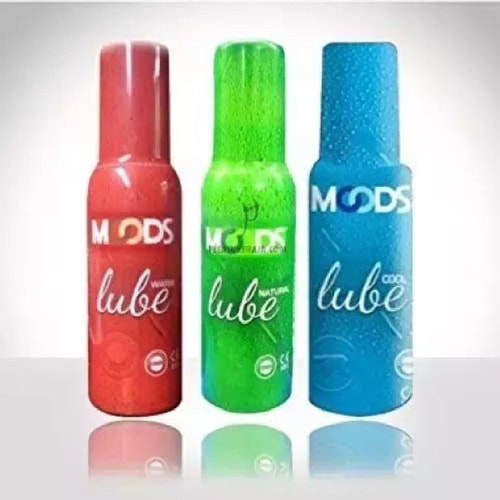Here are a few common reasons that could lead to pain during sex in women and how to avoid them:
#1 Vaginal dryness
Lack of natural lubrication is one of the common reasons for pain during sex in women. There could be various reasons leading to vaginal dryness. Certain medications like contraceptive pills, antidepressant and medications for allergies tend to make the skin down there become dry and flaky. For women who are reaching menopause, the vaginal lining can lose its moisture and become itchy causing pain during sex. Here are seven tips for a healthy vagina.

What you can do:
Use a water-based lubricant to moisturise the area before having sex. Also, vaginal stimulation and foreplay before the act could help you lubricate the area naturally. If medications are the reason behind your problem, talk to your doctor to come up with a plan to spice up your sex life. Avoid taking hot water baths before having sex as it dries the vaginal area.
#2 Vaginal infections
Fungal or yeast infections in the vagina are a root cause of pain during sex. These infections lead to itching, burning sensation and also make the vagina dry. Sometimes an infection in the cervix could also trigger pain during sex. This is because the penis reaches the cervix during maximum penetration.
What you can do:
Tropical creams that treat vaginal infections could be of help. However, talk to your doctor before using one. An infection in the cervix would need medical monitoring or an advanced test like a pap smear to ascertain the cause. Here is what you need to know about excessive vaginal discharge.
#3 Injury to the vagina
A tear in the vagina due to natural birth or an episiotomy could make sex painful after childbirth.
What you can do
Don’t be in a hurry to resume your sex life after six weeks of delivery, as the doctor advised. Your body needs more time to heal than what is speculated. In fact, take a break from sex if your vagina is not completely healed. Also, low levels of estrogen post-delivery make the vaginal area drier and difficult for penetration. Here is how to take care of your vagina after an episiotomy.
#4 Vaginismus
In this condition, the vagina goes into spasm as the penis tries to penetrate inside. This is an involuntary condition where the reason for the spasm is mainly a previous trauma, pain or other physiological factors.
What you can do:
There are a lot of therapies like relaxation techniques, couple therapy or even the recent treatment with Botox to help relax the vaginal muscles during intercourse. Sometimes doing Kegel exercises also helps to get some relief from the symptom. Here is how Botox helps in the treatment of vaginismus.
#5 Other female problems:
Fibroids, cysts in the ovaries, endometriosis, pelvic inflammatory diseases and ectopic pregnancy can all trigger pain during deep penetration. Apart from this, sexually transmitted diseases could also be a problem during intercourse.
What you can do:
Most of these problems would need medical interventions. Also, the symptoms of these problems would vary from one another. Hence, if there is no known cause for pain during sex get checked with your doctor to ascertain the cause and get treated accordingly.
The best solution to this is the usage of Personal Lubricant
A best personal lubricant will increase the lubrication making penetration and also masturbation more pleasurable, instead of painful. Utilizing a personal lubricant can also make condoms for reliable and add sensation during intercourse. Studies show that not using a personal lubricant with a condom is the number one reason why condoms do break.
What Kind of Personal Lubricant Are Available?
Personal lubricants are available in water-based or silicone-based formulas. Water-based lubricants are sex toy and condom safe. Depending on the quality of the water-based lubricant, re-application may be needed as some water-based lubricants can dry out. Water-based lubricants tend to be less expensive than silicone based personal lubricants.
Although water-based lubricants are slippery, they are not as silky and long lasting as silicone based lubricants. Silicone based personal lubricants are not sticky, are condom safe and can be used in water. Silicone lubricants retain their silky feel and are very long lasting
There are a number of lubricants designed to enhance your sexual experience even further such as flavoured, warming, and cooling lubricants. Flavoured lubricants are popular to use during oral sex. Flavoured lubricants are available in flavours such as Vanilla, Cola, Strawberry, Mint, and more. Manufacturers such as Wet are well known for their flavoured lubricants.
Warming lubricants are fantastic to use during foreplay and sexual intercourse. When you blow on a warming lubricant or rub it, it creates heat, which can enhance the sensations during sexual play. Warming lubricants can be used with a sex toy and also for masturbation to intensify the pleasure. Cooling lubricants also provide added pleasure, similar to the warming lubricants. Cooling lubricants will give off a cooling, tingling sensation when blown on, and are condom sage.
Some individuals have a sensitivity to certain ingredients such as Glycerin and Paraben. Some women have reported that certain lubricants can cause irritation and aggravate recurring yeast infections. For this reason, manufacturers have developed more natural, water-based lubricants that do not contain glycerin, sugar, or paraben. If you are a female who is prone to yeast infections, it is recommended to consult with your physician prior to purchasing a personal lubricant.
Anal lubricants are also developed to ease penetration during anal play. Certain anal lubricants contain benzocaine, which gently numb the anal region to make it less painful for beginners who are experimenting with anal sex. Anal lubricants are recommended for anal play to achieve the most pleasure out of the experience.
Tip: It is not recommended to use personal lubricants that contain oil. Using products that contain baby oil, vaseline, petroleum jelly, or massage oils will damage latex products.